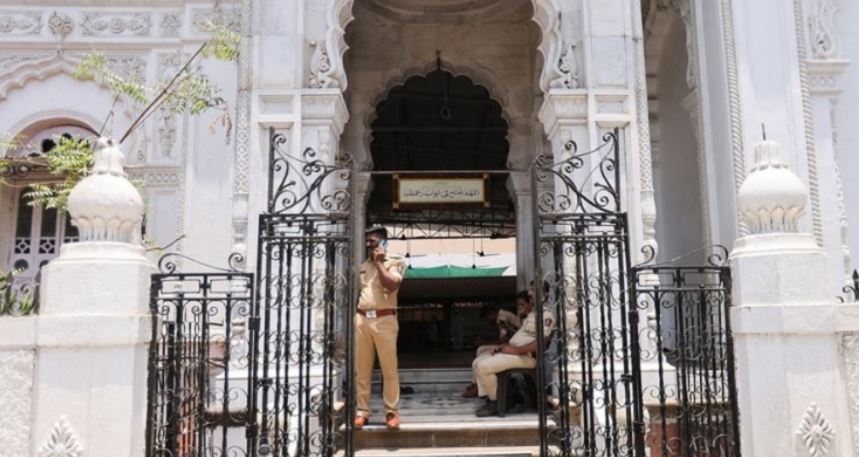Sitting in an office lined with books overlooking a giant prayer hall, Mohammed Ashfaq Kazi, the main preacher at the largest mosque in Mumbai, checked a decibel meter attached to the loudspeakers before he gave the call to worship.
“The volume of our azaan (call to prayer) has become a political issue, but I don’t want it to take a communal turn,” said Kazi, one of the most influential Islamic scholars in the sprawling metropolis on India’s western coast.
As he spoke he pointed to loudspeakers attached to the minarets of the ornate, sand-coloured Juma Masjid in Mumbai’s old trading quarters.
Kazi and three other senior clerics from Maharashtra where Mumbai is located said more than 900 mosques in the west of the state had agreed to turn the volume down on calls to prayer following complaints from a local Hindu politician.
Raj Thackeray, leader of a regional Hindu party, demanded in April that mosques and others places of worship kept within allowed noise limits. If they did not, he said his followers would chant Hindu prayers outside mosques in protest.
Thackeray, whose party has just one seat in the state’s 288-member assembly, said he was merely insisting that court rulings on noise levels be enforced.
“If religion is a private matter then why are Muslims allowed to use loudspeakers all 365 days (of the year)?” Thackeray told reporters in Mumbai, India’s financial hub and capital of Maharashtra.
“My dear Hindu brothers, sisters and mothers come together; be one in bringing down these loudspeakers,” he said.
Leaders of India’s 200 million Muslims see the move, which coincided with the holy festival of Eid, as another attempt by hardline Hindus to undermine their rights to free worship and religious expression, with the tacit agreement of the ruling Hindu nationalist Bharatiya Janata Party (BJP).
In recent weeks, a senior BJP leader began pushing for swapping marriage and inheritance laws based on religion with a uniform civil code, taking aim at rules that allow Muslim men, for example, to have four wives.
The BJP did not respond to a request for comment on Thackeray’s initiative. It denies targeting minorities, and says it wants progressive change that benefits all Indians.

















